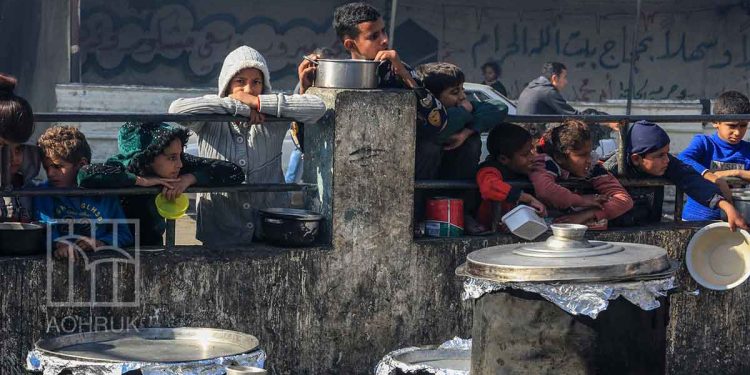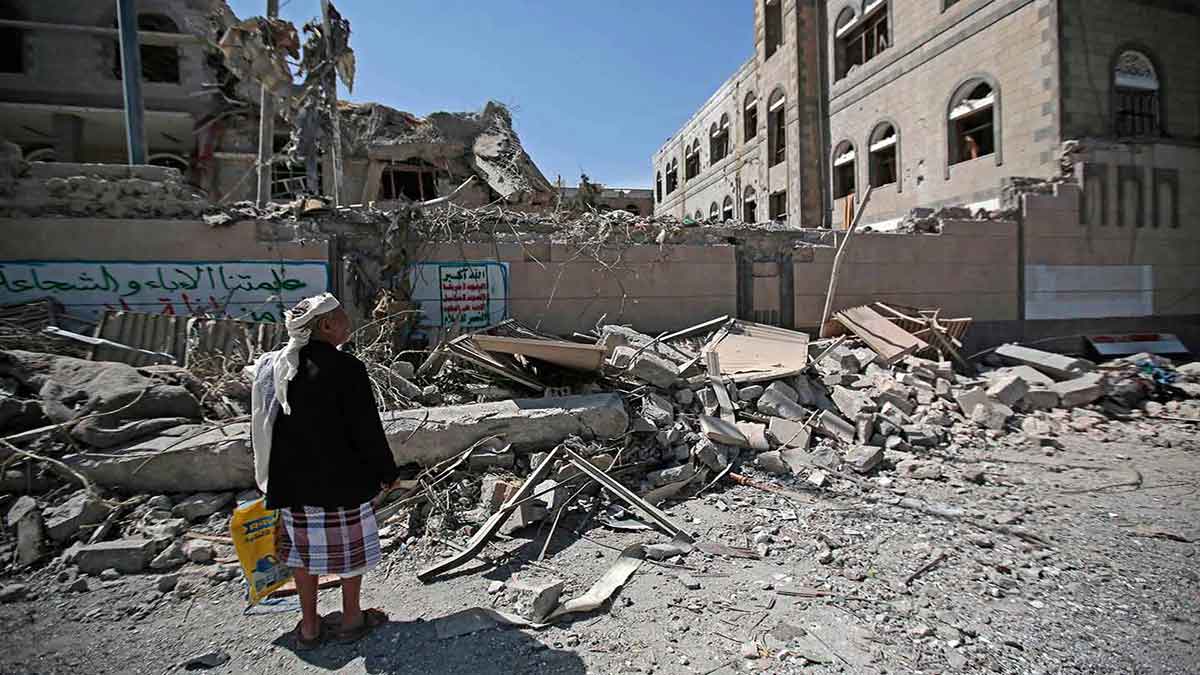The humanitarian crisis in Gaza has reached unprecedented levels, as over two million Palestinians remain trapped between ongoing military assaults and a rapidly worsening famine. With the collapse of essential infrastructure and the total blockade on the entry of food, water, and medicine, survival has become a daily struggle.
According to the United Nations World Food Programme (WFP), Gaza is facing the imminent threat of mass starvation. The majority of the population—most of whom are internally displaced—are entirely dependent on humanitarian aid, which has largely stopped reaching the territory due to the Israeli-imposed closure of all crossings.
The WFP warned that “the growing threat to hundreds of thousands of civilians in Gaza is being compounded by the critical depletion of food stocks,” stressing the urgent need for sustained and unhindered aid access. The agency further cautioned that the current situation, if left unaddressed, would result in severe humanitarian consequences.
Israel’s continued use of essential resources—food, water, and medicine—as tools of war is a clear violation of international humanitarian law, which prohibits the starvation of civilians as a method of warfare. The Geneva Conventions explicitly define the deliberate obstruction of humanitarian assistance during times of critical need as a war crime.
On the ground, Gaza residents describe scenes of deepening desperation: children going hungry, families burning furniture to cook what little food remains, and queues stretching for hours in the hope of securing a single meal. Despite the urgency, humanitarian convoys are being blocked, and the borders remain closed under military orders.
The severity of the crisis demands urgent international intervention. Human rights organisations have called for independent investigations into the blockade and starvation policies, urging the global community to ensure accountability for what may amount to crimes against humanity.
As the death toll rises and malnutrition spreads, the failure of the international community to act has deepened Gaza’s isolation. In the absence of decisive action, more lives will be lost—not only from bombs, but from hunger and disease. The siege must end, and access to life-saving aid must be restored without delay.


























